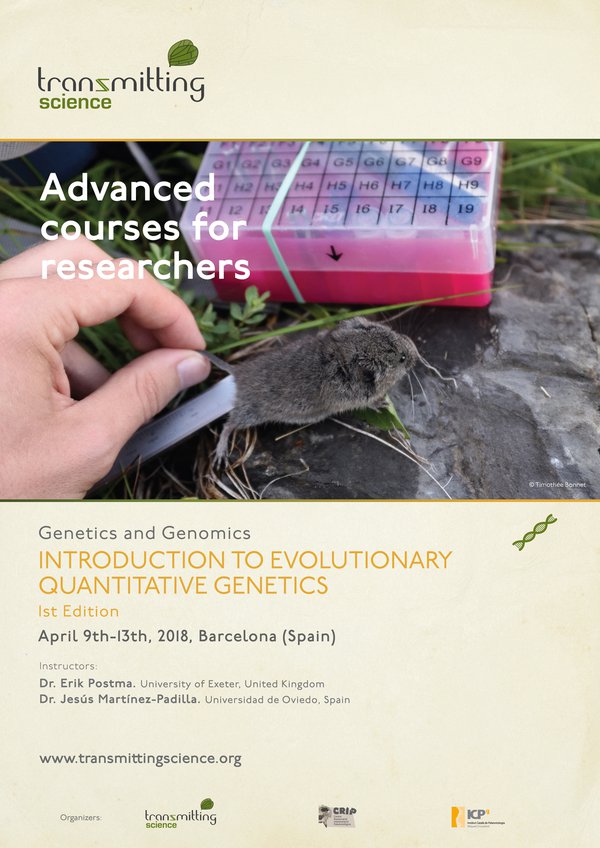
Submitted 16 October 2017 by Soledad De Esteban-Trivigno

Dear Colleague,
Registration is open for Transmitting Science course “Introduction to Evolutionary Quantitative Genetics”
Instructors: Dr. Erik Postma (University of Exeter, UK) and Dr. Jesús Martínez-Padilla (Universidad de Oviedo, Spain).
Dates: April 9th-13th, 2018.
Place: Facilities of the CRIP, Els Hostalets de Pierola, Barcelona (Spain).
More information: http://www.transmittingscience.org/courses/genetics-and-genomics/introduction-evolutionary-quantitative-genetics/ or writing to [email protected]
Quantitative genetics uses the phenotypic resemblance among related individuals to infer the role of genes and the environment in shaping phenotypic variation. By simultaneously using the resemblance among all individuals in the pedigree, these methods provide more precise and accurate estimates of genetic and non-genetic variance components (heritabilities and genetic correlations). Furthermore, they allow for the estimation of individual-level genetic effects (breeding values), and thereby the inference of evolution. In this course we will cover everything from basic quantitative genetic theory and statistics to advanced mixed model-based approaches. You will learn how to estimate genetic variances and covariances in wild and captive populations, and how to test for evolutionary change. Along the way, you will be exposed to the main software packages, and the R packages MCMCglmm and ASReml-R in particular, and you will learn about their strengths and weaknesses. You are strongly encouraged to bring your own data (if you have it), which you will be able to work on during the course and which will allow you to put the theory into practice.
Copyright © 2024 American Association of Biological Anthropologists.
Site programming and administration: Ed Hagen, Department of Anthropology, Washington State University